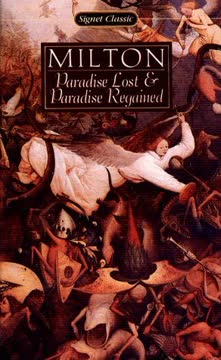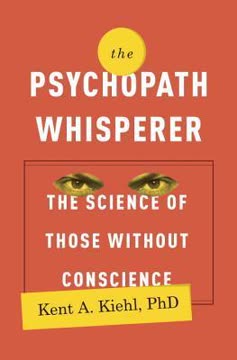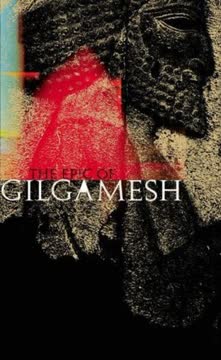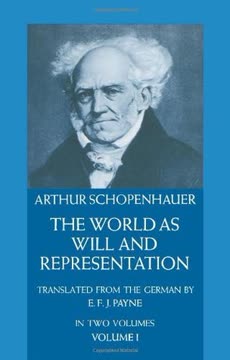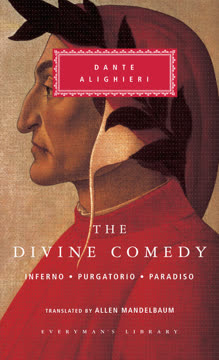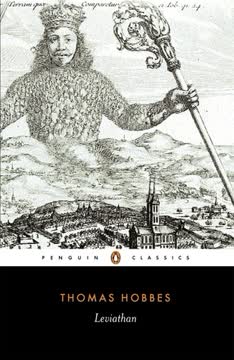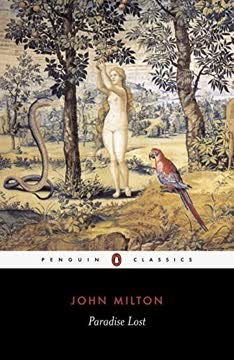Plot Summary
War in Heaven Ignites
The epic opens with a cosmic war: Satan, once the highest of angels, rebels against God's authority, rallying a third of Heaven's host. His pride and ambition drive him to challenge the divine order, but the rebellion is crushed by the Son of God, who leads loyal angels to victory. The defeated rebels are cast out of Heaven, falling into the abyss of Hell. This celestial conflict sets the stage for the drama of human history, as Satan's defeat breeds a burning desire for revenge against God's newest creation—mankind.
Satan's Fall and Resolve
Banished to Hell, Satan awakens amid the fiery wastes, his spirit unbroken. He rallies his fallen peers, including Beelzebub, and proclaims that it is "better to reign in Hell than serve in Heaven." Refusing repentance, he plots to corrupt God's new world. The infernal council debates their next move, ultimately deciding to seek out and ruin humanity, thus wounding God through His beloved creation. Satan volunteers to undertake the perilous journey alone, determined to pervert good into evil.
Pandemonium: Council of Rebels
In the newly built Pandemonium, the capital of Hell, the fallen angels convene. Moloch advocates open war, Belial counsels slothful inaction, and Mammon suggests making the best of Hell. Beelzebub, echoing Satan's secret plan, proposes corrupting mankind as the surest revenge. The council agrees, and Satan sets out to find the new world, passing through the gates of Hell, guarded by Sin and Death—his own monstrous offspring.
The Journey Through Chaos
Satan's journey is fraught with peril as he traverses the chaotic abyss separating Hell from the created universe. He encounters the personifications of Chaos and Night, who allow him passage, hoping he will bring further disorder. After a harrowing voyage, Satan glimpses the newly created Earth, suspended in the heavens, and plots his entry into Paradise.
Creation's Dawn Unveiled
The narrative shifts to a majestic retelling of creation. God, through His Son, brings light, order, and life to the formless void. The heavens, earth, seas, plants, animals, and finally mankind—Adam and Eve—are formed. Adam and Eve awaken in Eden, innocent and free, tasked with stewardship of creation and given one prohibition: not to eat from the Tree of Knowledge.
Eden: Innocence and Love
Adam and Eve live in blissful harmony, tending the garden and enjoying each other's company. Their love is pure, their labor light, and their relationship with God intimate. The archangel Raphael visits, warning them of Satan's designs and recounting the war in Heaven. Adam and Eve are reminded of their free will and the importance of obedience.
Satan's Temptation Begins
Satan enters Eden, marveling at its beauty but burning with envy. He disguises himself as a serpent and observes Adam and Eve, seeking the opportune moment to strike. He is momentarily moved by their innocence but quickly steels himself, determined to bring about their downfall.
The Fall of Mankind
Satan, in the guise of the serpent, approaches Eve alone. He flatters her, questions God's command, and promises godlike knowledge if she eats the forbidden fruit. Eve, beguiled, eats and then persuades Adam to join her. Instantly, their innocence is lost; shame, lust, and discord enter their relationship. The harmony of Eden is shattered.
Guilt, Shame, and Judgment
Overwhelmed by guilt and fear, Adam and Eve attempt to hide from God. When confronted, they shift blame—Eve to the serpent, Adam to Eve. God pronounces judgment: the serpent is cursed, Eve will suffer in childbirth and be subject to Adam, and Adam will toil for survival. Death and suffering enter the world, but a promise is made: the seed of the woman will one day crush the serpent's head.
Sin and Death Enter the World
Sin and Death, literal offspring of Satan, construct a bridge from Hell to Earth, allowing evil to flow into the world. Nature itself is corrupted; animals become predatory, and suffering multiplies. Adam and Eve experience the full weight of their actions, lamenting the loss of innocence and the pain they have unleashed.
Exile and Hope for Redemption
God, moved by their repentance, tempers justice with mercy. He clothes them and promises eventual redemption through their offspring. The archangel Michael reveals to Adam visions of humanity's future: violence, suffering, and death, but also the hope of salvation. Adam and Eve are expelled from Eden, but not without the assurance that God's grace will ultimately prevail.
Visions of Human History
Michael shows Adam the unfolding of human history: Cain's murder of Abel, the spread of sin, the Flood, the rise of nations, and the story of Israel. Adam sees the persistence of evil but also glimpses moments of faith, justice, and divine intervention. The vision culminates in the promise of a coming Redeemer.
The Promise of a Savior
Adam learns that through his lineage, a Savior will arise—the "seed" who will defeat Satan and restore humanity's lost paradise. This Redeemer will fulfill the law, suffer, and triumph over sin and death, offering salvation to all who believe. Adam is comforted, understanding that obedience and faith are the path to true happiness.
Christ's Temptation in the Wilderness
Paradise Regained begins with Christ's baptism and withdrawal into the wilderness. Satan, aware of the prophecy, seeks to tempt Jesus as he did Adam. He offers food, power, and glory, but Jesus resists each temptation, relying on faith, scripture, and obedience to God's will.
The Defeat of Satan
Satan's temptations grow increasingly desperate, but Jesus remains unmoved. Unlike Adam and Eve, he does not waver, demonstrating perfect submission to God. Satan is ultimately defeated, cast down in humiliation, and the angels rejoice at Christ's victory.
Paradise Regained: Obedience Restored
Through Christ's steadfastness, the path to redemption is secured. He emerges from the wilderness, ready to begin his ministry and fulfill the promise made in Eden. The restoration of paradise is now possible—not as a physical garden, but as a renewed relationship between God and humanity.
The Human Journey Continues
Adam and Eve, though exiled, embark on a new journey, hand in hand, sustained by faith in God's promise. Their story becomes the story of all humanity: a pilgrimage through suffering toward ultimate restoration. The world is before them, and Providence their guide.
Characters
Satan
Satan is the central antagonist, once the highest of angels, now the leader of the fallen. His pride, ambition, and refusal to submit to God drive the narrative. Psychologically, he is complex—capable of grand rhetoric, self-doubt, and even fleeting empathy, but ultimately consumed by envy and hatred. His relationships with Sin and Death, his own offspring, symbolize the self-perpetuating nature of evil. Throughout, Satan's arc is a study in the self-destructive consequences of pride and the perversion of free will.
Adam
Adam is the first man, created in God's image and endowed with reason, free will, and responsibility. He is loving, curious, and deeply connected to Eve. His psychological journey moves from innocence to guilt, despair, and finally hope. Adam's relationship with Eve is both a source of strength and vulnerability. His development reflects the human condition: the struggle between obedience and desire, the pain of loss, and the possibility of redemption.
Eve
Eve is intelligent, beautiful, and independent-minded. Her curiosity and desire for knowledge make her susceptible to Satan's flattery. She is both a victim and an agent in the Fall, and her relationship with Adam is marked by love, mutual dependence, and, after the Fall, tension and reconciliation. Eve's psychological depth is revealed in her remorse, humility, and eventual acceptance of grace.
God the Father
God is depicted as omnipotent, omniscient, and benevolent. He creates out of love, grants free will, and balances justice with mercy. His relationship with humanity is parental—disciplining but also providing hope for restoration. God's foreknowledge does not negate human freedom, and His ultimate plan is the redemption of mankind through the Son.
The Son (Jesus Christ)
The Son is both the agent of creation and the promised Redeemer. In Paradise Lost, he volunteers to become incarnate and atone for humanity's sin. In Paradise Regained, he resists Satan's temptations, succeeding where Adam failed. His character is marked by humility, wisdom, and unwavering obedience, offering a model of true kingship and self-sacrifice.
Raphael
Raphael is the archangel sent to warn and instruct Adam and Eve. He recounts the war in Heaven, explains the nature of free will, and urges vigilance. Raphael's role is that of a mentor, bridging the gap between divine knowledge and human understanding.
Michael
Michael is the archangel who expels Adam and Eve from Eden but also comforts them with visions of future redemption. He embodies both justice and compassion, guiding Adam toward acceptance and hope.
Beelzebub
Beelzebub is Satan's closest ally, often serving as his advisor and echoing his ambitions. He is persuasive, strategic, and instrumental in shaping the infernal council's decisions.
Sin
Sin is a monstrous figure, born from Satan's head, symbolizing the birth of evil from pride. She is both daughter and consort to Satan, and mother to Death. Her character represents the self-generating cycle of sin and its consequences.
Death
Death, the offspring of Sin and Satan, is a shadowy, terrifying figure who brings suffering and decay into the world. He is relentless, insatiable, and the ultimate consequence of disobedience.
Plot Devices
Epic Structure and Invocation
Milton employs the grand style of epic poetry, invoking the muse, using blank verse, and structuring the narrative with in medias res openings, flashbacks, and prophetic visions. This elevates the biblical story to universal significance, blending classical and Christian traditions.
Allegory and Personification
Sin and Death are literal characters, dramatizing the psychological and spiritual consequences of rebellion. The journey through Chaos, the council in Pandemonium, and the building of the bridge from Hell to Earth all serve as vivid allegories for the spread of evil and the corruption of creation.
Foreshadowing and Prophecy
Through Raphael and Michael, Adam is shown the future: the rise and fall of civilizations, the coming of the Messiah, and the ultimate restoration of paradise. These prophetic elements connect the Fall to the hope of salvation, reinforcing the theme of providence.
Temptation and Free Will
The central plot device is temptation—first of the angels, then of Adam and Eve, and finally of Christ. Each temptation is a test of free will, with cosmic consequences. The contrast between Adam's failure and Christ's victory underscores the possibility of redemption through obedience.
Dialogue and Debate
Milton's characters engage in extended dialogues—between Satan and his peers, Adam and Eve, the angels and humans—exploring themes of justice, liberty, knowledge, and love. These debates invite readers to wrestle with the complexities of faith, reason, and human nature.
Analysis
Milton's narrative transforms the biblical account of the Fall into a profound exploration of free will, pride, obedience, and grace. By giving voice to Satan's inner turmoil, Milton humanizes evil, making the struggle between good and evil an internal as well as cosmic battle. The poem's structure, rich symbolism, and philosophical dialogues invite readers to reflect on the nature of justice, the cost of disobedience, and the hope of redemption. Paradise Regained completes the arc, showing that true victory is achieved not through power or knowledge, but through humility and steadfast faith. In a modern context, Milton's work remains a powerful allegory for the human condition: our capacity for error, the pain of loss, and the enduring promise of restoration through perseverance, love, and grace.
Last updated:
FAQ
Synopsis & Basic Details
What is Paradise Lost and Paradise Regained about?
- Epic of Humanity's Fall: Paradise Lost recounts the biblical story of Satan's rebellion against God, his expulsion from Heaven, and his subsequent temptation of Adam and Eve, leading to humanity's expulsion from the Garden of Eden and the introduction of sin and death into the world. It aims to "justify the ways of God to men."
- Christ's Redemptive Triumph: Paradise Regained focuses on Jesus Christ's temptation in the wilderness by Satan, where he successfully resists all of the devil's wiles, thereby reversing Adam's fall and paving the way for humanity's ultimate salvation and the restoration of a "Paradise within."
- Cosmic Battle for Souls: Both poems explore the grand conflict between good and evil, divine justice and mercy, and the profound implications of free will and obedience for both celestial beings and mankind, culminating in Christ's exemplary steadfastness.
Why should I read Paradise Lost and Paradise Regained?
- Unparalleled Poetic Grandeur: Milton's mastery of blank verse and epic scope offers a sublime literary experience, elevating biblical narratives to universal themes of freedom, fate, and moral choice, making it a cornerstone of English literature.
- Profound Theological & Philosophical Inquiry: The poems delve into complex questions about God's justice, human free will, the nature of evil, and the path to redemption, inviting readers to engage with deep philosophical and theological debates.
- Rich Character Psychology: Beyond plot, Milton crafts deeply psychological portraits, particularly of Satan, Adam, and Eve, exploring their motivations, internal conflicts, and emotional journeys in ways that resonate with the complexities of the human condition.
What is the background of Paradise Lost and Paradise Regained?
- Milton's Personal & Political Context: Written after the English Civil War and the Restoration, Milton, a staunch republican and Puritan, infused the epic with his disillusionment and political ideals, subtly critiquing tyranny and advocating for true liberty, often seen in Satan's rhetoric and Christ's rejection of worldly power.
- Classical & Biblical Synthesis: Milton draws heavily from classical epic traditions (Homer, Virgil) in its structure, invocations, and grand style, while fundamentally reinterpreting biblical narratives (Genesis, Gospels) through a Protestant theological lens, creating a unique blend of pagan and Christian influences.
- Blindness and Divine Inspiration: Milton composed much of Paradise Lost and Paradise Regained after becoming completely blind, dictating his verse. This personal struggle is reflected in the invocation to the "Heavenly Muse" in Book III of Paradise Lost, where he asks for "celestial Light, / Shine inward, and the mind through all her powers / Irradiate," connecting his physical darkness to spiritual illumination.
What are the most memorable quotes in Paradise Lost and Paradise Regained?
- "Better to reign in Hell than serve in Heaven." (Satan, Paradise Lost, Book I): This iconic declaration encapsulates Satan's defiant pride and unyielding ambition, defining his character and the core conflict of the epic. It's a powerful statement on the allure of self-sovereignty, even in misery.
- "The mind is its own place, and in itself / Can make a Heaven of Hell, a Hell of Heaven." (Satan, Paradise Lost, Book I): This quote reveals Satan's psychological resilience and his belief in the power of internal disposition over external circumstance, a profound philosophical statement on perception and inner state.
- "Suffering for truth's sake / Is fortitude to highest victory, / And, to the faithful, death the gate of life." (Adam, Paradise Lost, Book XII): Spoken by Adam after Michael's visions, this quote marks his profound shift from despair to understanding, highlighting the central theme of Christian heroism through patient endurance and faith, a direct precursor to Christ's victory in Paradise Regained.
What writing style, narrative choices, and literary techniques does John Milton use?
- Grand Blank Verse: Milton employs unrhymed iambic pentameter, known as blank verse, with unparalleled skill, creating a majestic, elevated, and flexible poetic language that mirrors the epic scope of his subject matter. This choice allows for sustained narrative and complex thought.
- In Medias Res & Epic Similes: The narrative famously begins "in medias res" (in the middle of things) with the fallen angels in Hell, using flashbacks (Raphael's account of the War in Heaven) to fill in backstory. Milton also utilizes elaborate, extended epic similes, often drawing from classical mythology or natural phenomena, to illuminate abstract concepts or grand scenes, such as Satan's size compared to Leviathan (Book I).
- Allusion and Intertextuality: Milton weaves a dense tapestry of allusions to classical literature, mythology, and especially the Bible, enriching his narrative with layers of meaning and demonstrating his vast erudition. This intertextual approach invites readers to engage with the story on multiple intellectual and spiritual levels, comparing his narrative to established traditions.
Hidden Details & Subtle Connections
What are some minor details that add significant meaning?
- Eve's Narcissistic Origin: In Book IV, Eve recounts her first awakening, where she was drawn to her own reflection in a lake, finding it "less fair" than Adam. This subtle detail foreshadows her susceptibility to flattery and self-admiration, a psychological vulnerability Satan later exploits, linking her initial self-fascination to her eventual desire for godlike knowledge.
- The Serpent's Pre-Fall Innocence: Before Satan enters it, the serpent is described in Book IX as "not yet in horrid shade or dismal den, / Nor nocent yet; but, on the grassy herb, / Fearless unfeared he slept." This detail emphasizes that the serpent itself was an innocent creature, highlighting Satan's complete corruption of nature and the insidious nature of his evil, which perverts even the pure.
- God's "Golden Scales": In Book IV, when Satan and Gabriel are about to fight, God hangs "his golden scales" in Heaven. The scale representing Satan's fight "quick up flew, and kicked the beam," signifying his inevitable defeat. This detail subtly reinforces divine omnipotence and foreknowledge, showing that even seemingly spontaneous events are part of a larger, predetermined cosmic order.
What are some subtle foreshadowing and callbacks?
- Eve's Troubling Dream: In Book V, Eve recounts a dream where a figure (Satan in disguise) tempts her to eat from the forbidden tree and ascend to godhood. This dream is a powerful psychological foreshadowing, revealing her subconscious desires for knowledge and elevation, making her later temptation by the actual serpent less a sudden event and more the culmination of an internal vulnerability.
- Adam's "Fondness" for Eve: Raphael warns Adam in Book VIII about prioritizing passion over reason, a subtle foreshadowing of Adam's later decision to eat the fruit, not out of deception, but out of an overwhelming love and loyalty to Eve, choosing to share her fate rather than live without her. This highlights Adam's specific weakness, distinct from Eve's curiosity.
- The "Paradise Within" Callback: Michael's final prophecy in Book XII, that Adam and Eve will find "A Paradise within thee, happier far," directly echoes the initial loss of the physical Eden. This serves as a profound callback to the opening premise, transforming the concept of paradise from an external location to an internal spiritual state, emphasizing the enduring hope of redemption through faith and virtue.
What are some unexpected character connections?
- Satan and the "Paradise of Fools": In Book III, Milton describes a Limbo, or "Paradise of Fools," where "all things transitory and vain" and those who built "fond hopes of glory or lasting fame" gather. This subtly connects Satan, who is driven by vain glory and ambition, to the very folly he despises, suggesting that his grand schemes ultimately lead to a similar emptiness.
- Beelzebub's "Slothful Inaction" and Human Corruption: Beelzebub, in Book II, advocates for a "peaceful sloth" in Hell, suggesting that suffering might eventually become tolerable. This seemingly minor character's philosophy unexpectedly mirrors the later human tendency towards "luxurious wealth" and "sloth" (Book XI), implying that even passive vices can lead to profound moral decay, a subtle link between infernal and human corruption.
- The Son as the "Second Adam": While explicitly stated, the depth of this connection is subtly woven throughout. In Paradise Lost, the Son volunteers to redeem mankind, and in Paradise Regained, he directly confronts and overcomes the same temptations (food, power, glory) that led to Adam's fall. This parallel highlights Christ's perfect obedience as the ultimate antidote to Adam's disobedience, establishing him as the archetypal "new man."
Who are the most significant supporting characters?
- Abdiel: The Exemplar of True Loyalty: In Book V and VI of Paradise Lost, Abdiel stands alone against Satan's rebellion, defying the vast majority of angels. His unwavering faithfulness, even when isolated and scorned, serves as a powerful counterpoint to Satan's pride and a model of true obedience, demonstrating that "how few sometimes may know, when thousands err."
- Uriel: The Unwitting Enabler: Uriel, "the sharpest-sighted Spirit of all in Heaven" (Book III), is deceived by Satan's disguise. This highlights the insidious nature of hypocrisy, which "only evil that walks / Invisible, except to God alone," and underscores the vulnerability of even the most discerning beings to sophisticated fraud.
- Sin and Death: The Manifestation of Evil's Consequences: More than mere allegories, Sin and Death are Satan's literal offspring, embodying the self-perpetuating and destructive nature of his rebellion. Their grotesque forms and their construction of the bridge from Hell to Earth (Book X) vividly illustrate how transgression begets further corruption and suffering, making the abstract consequences of sin tangible.
Psychological, Emotional, & Relational Analysis
What are some unspoken motivations of the characters?
- Satan's Deep-Seated Envy of the Son: While Satan explicitly states his pride and ambition, a deeper, unspoken motivation is his profound envy of the Son's exaltation. God's decree to honor the Son as "King anointed" (Book V) is the immediate trigger for Satan's rebellion, revealing a jealousy that festers beneath his claims of liberty and equality.
- Eve's Latent Desire for Autonomy: Eve's suggestion to Adam in Book IX to "divide our labours" and work separately, though framed practically, hints at an underlying desire for individual agency and a test of her own virtue apart from Adam's direct oversight. This subtle yearning for independence makes her particularly vulnerable to Satan's flattery, which appeals to her self-worth and potential for greater knowledge.
- Adam's Prioritization of Love over Obedience: Adam's decision to eat the forbidden fruit, knowing it is wrong, is driven by an unspoken fear of losing Eve and a profound emotional bond. He declares, "How can I live without thee! how forego / Thy sweet converse, and love so dearly joined?" (Book IX). This reveals a motivation rooted in human attachment, placing his love for Eve above his direct obedience to God, a tragic flaw born of intense affection.
What psychological complexities do the characters exhibit?
- Satan's Self-Delusion and Internal Hell: Satan, despite his grand pronouncements, frequently experiences profound internal torment. In Book IV, he laments, "Which way I fly is Hell; myself am Hell," revealing a deep psychological truth: his suffering is not merely external punishment but an intrinsic state of his corrupted being. His pride forces him to project outward defiance while inwardly groaning under the weight of his choices.
- Eve's Intellectual Curiosity and Vanity: Eve is not merely weak; her psychological complexity lies in her active intellectual curiosity and a subtle vanity. She is drawn to the serpent's promise of "knowledge of good and evil" and the idea of becoming "as Gods" (Book IX). This desire for elevated understanding and status, coupled with the serpent's flattery, reveals a mind capable of independent thought but also susceptible to self-aggrandizement.
- Adam's Rationality and Emotional Vulnerability: Adam is portrayed as highly rational, capable of deep philosophical discourse with Raphael. However, his psychological complexity is revealed in his emotional vulnerability, particularly his "fondness" for Eve (Book VIII). His intellect is sound, but his heart, when faced with Eve's fall, overrides his reason, demonstrating the powerful interplay between intellect and emotion in human decision-making.
What are the major emotional turning points?
- Satan's First Tears in Hell: In Book I, after rallying his legions, Satan "Thrice he assayed, and thrice, in spite of scorn, / Tears, such as Angels weep, burst forth." This moment is a crucial emotional turning point, revealing the immense pain and despair beneath his defiant exterior, hinting at the tragic cost of his rebellion and the depth of his lost happiness.
- Adam's Despair and Eve's Humility Post-Fall: After the Fall, Adam and Eve descend into mutual recrimination (Book IX). The emotional turning point for their relationship comes when Eve, "Not so repulsed, with tears that ceased not flowing... at his feet / Fell humble," begging for his peace. This act of profound humility breaks Adam's anger and allows for their reconciliation, marking the beginning of their path to repentance.
- Christ's Steadfastness Amidst Terrors: In Paradise Regained, Book IV, during the night of storms and infernal spectres, Christ "Sat'st unappalled in calm and sinless peace." This is an emotional turning point that contrasts sharply with Adam's post-Fall turmoil. It demonstrates Christ's perfect inner peace and unwavering faith, highlighting his divine nature and his successful resistance to psychological warfare.
How do relationship dynamics evolve?
- God and His Son: From Decree to Shared Mission: Initially, God the Father decrees the Son's exaltation, which sparks Satan's envy (Book V). However, the relationship evolves into a shared mission of redemption, with the Son voluntarily offering himself as a sacrifice (Book III) and later being entrusted with judging and restoring humanity (Book X), demonstrating a profound unity of purpose and love.
- Adam and Eve: From Innocent Harmony to Post-Fall Discord and Reconciliation: Their relationship begins in perfect "mutual help / And mutual love" (Book IV). The Fall introduces "Anger, and obstinacy, and hate, and guile" (Book X), leading to bitter mutual accusations. However, Eve's humble repentance and Adam's subsequent compassion lead to a reconciliation, transforming their bond into one of shared suffering and renewed, albeit chastened, love, as they "in offices of love, how we may lighten / Each other's burden" (Book X).
- Satan and His Demons: From United Rebellion to Self-Serving Tyranny: The fallen angels initially unite under Satan's leadership, driven by shared ambition (Book I). However, as their schemes unfold, Satan increasingly asserts his "monarchal pride" (Book II), and his relationship with his followers becomes one of manipulation and self-aggrandizement. Their ultimate transformation into serpents and their forced consumption of bitter ashes (Book X) symbolizes the self-destructive nature of their collective evil and Satan's ultimate tyranny over them.
Interpretation & Debate
Which parts of the story remain ambiguous or open-ended?
- The Extent of God's Foreknowledge vs. Free Will: While God explicitly states that His foreknowledge does not necessitate the Fall ("I form'd them free: and free they must remain, / Till they enthrall themselves" - Book III), the precise interplay between divine omniscience and genuine human freedom remains a central interpretive challenge. Readers often debate whether Adam and Eve truly had a choice, given God's prior knowledge of their transgression.
- Satan's "Tragic Hero" Status: Milton's portrayal of Satan, particularly in the early books of Paradise Lost, is so compelling that many readers perceive him as a tragic hero, a figure of immense power and defiant will. The ambiguity lies in whether Milton intended this sympathetic reading or if it's a consequence of his poetic skill, leading to ongoing debate about the nature of heroism and evil.
- The Nature of "Paradise Within": Michael's promise of "A Paradise within thee, happier far" (Book XII) is a profound but abstract concept. The poem leaves open-ended the exact nature of this internal paradise and how it is achieved and sustained in a fallen world, inviting readers to interpret its spiritual and psychological dimensions for themselves.
What are some debatable, controversial scenes or moments in Paradise Lost and Paradise Regained?
- Eve's Desire for Separate Labor (Book IX): Eve's insistence on working apart from Adam, despite his warnings, is a highly debated moment. Some interpret it as a sign of her nascent independence and strength, while others see it as a manifestation of pride and a fatal flaw that makes her vulnerable to temptation, sparking discussions about gender roles and autonomy.
- Adam's Choice to Fall with Eve (Book IX): Adam's decision to eat the fruit, not because he is deceived, but out of love for Eve, is controversial. Was this an act of profound loyalty and self-sacrifice, or a greater sin than Eve's, as it stemmed from a conscious choice against God's command, prioritizing human affection over divine obedience? This challenges traditional interpretations of the Fall.
- The Son's "Unarmed" Victory in Paradise Regained: Christ's triumph over Satan in the wilderness is achieved not through physical combat or grand displays of power, but through intellectual and spiritual resistance, using scripture and unwavering faith. This "unarmed" victory (Book IV, Paradise Regained) can be seen as controversial by those expecting a more conventional heroic battle, prompting debate on the nature of true strength and spiritual warfare.
Paradise Lost and Paradise Regained Ending Explained: How It Ends & What It Means
- Exile from Eden, Guided by Providence: The ending of Paradise Lost sees Adam and Eve expelled from the Garden of Eden, a physical loss of paradise. However, they are not left without hope. Michael has revealed to Adam the future of humanity, including the coming of the Redeemer. They depart "hand in hand, with wandering steps and slow, / Through Eden took their solitary way," but crucially, with "Providence their guide." This signifies that their journey, though sorrowful, is not without divine oversight and a path towards future grace.
- The Promise of the "Paradise Within": The ultimate meaning of the ending is the shift from an external, physical paradise to an internal, spiritual one. Michael tells Adam, "then wilt thou not be loth / To leave this Paradise, but shalt possess / A Paradise within thee, happier far." This means that true happiness and communion with God are no longer dependent on a perfect external environment but on an inner state of faith, obedience, and virtue, accessible even in a fallen world. This is a key Paradise Lost ending explained theme.
- Christ's Triumph and Humanity's Renewed Hope: Paradise Regained concludes with Christ's complete victory over Satan's temptations, fulfilling the prophecy of the "Woman's Seed" bruising the serpent's head. He returns "unobserved, / Home to his mother's house private returned," signifying that his triumph is a quiet, spiritual one, not a worldly display of power. This victory secures the possibility of the "Paradise within" for all mankind, offering a definitive path to redemption and demonstrating that perfect obedience can overcome all evil, thus completing the overarching narrative of humanity's fall and potential restoration.
Review Summary
Paradise Lost and Paradise Regained receive generally positive reviews, with readers praising Milton's poetic language and vivid imagery. Many find Satan to be a compelling character, while some struggle with the dense text and theological themes. Paradise Lost is widely considered the superior work, with its epic scope and exploration of good and evil. Readers appreciate Milton's ability to breathe life into Biblical stories, though some find Paradise Regained less engaging. Overall, the poems are seen as challenging but rewarding reads that have significantly influenced Western literature.
Similar Books
Download PDF
Download EPUB
.epub digital book format is ideal for reading ebooks on phones, tablets, and e-readers.
